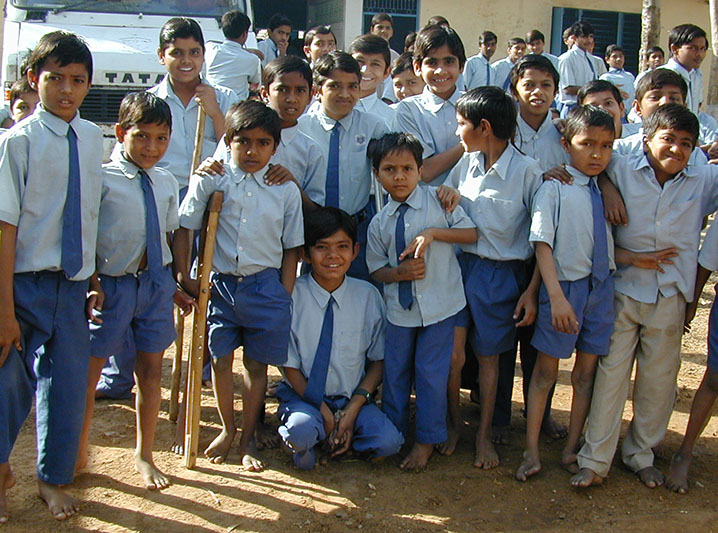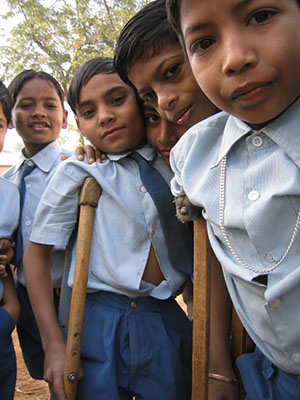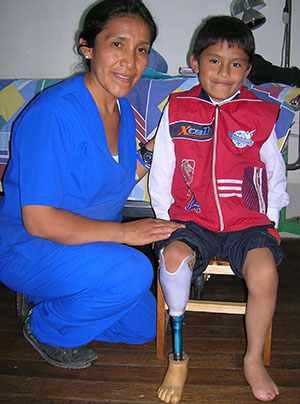Helping Children with Disabilities Regain Independence

No matter where they live in the world, a disabled child experiences struggles that many of us never have to face. In developing countries, these difficulties are often compounded by poverty. 90% of disabled children in the developing world will never have access to education, employment, marriage, or be able to live a self-sufficient life. Worldwide, the most common form of employment for children with disabilities is begging.
2013 Honoree C. Mead Welles co-founded A Leg To Stand On (ALTSO) to make sure children with limb disabilities have equal opportunities to lead independent, happy lives. Here is one child’s story:
 A strikingly beautiful teenage Indian girl was flying a kite in a kite contest in India. Her grandfather had handcrafted the kite for her, using wire for the kite string. During the contest, the kite blew into some electrical lines and a jolt of electricity ran down the wire. Her arms were blown off just beneath her shoulders, and her neck, chest and face were badly burned.
A strikingly beautiful teenage Indian girl was flying a kite in a kite contest in India. Her grandfather had handcrafted the kite for her, using wire for the kite string. During the contest, the kite blew into some electrical lines and a jolt of electricity ran down the wire. Her arms were blown off just beneath her shoulders, and her neck, chest and face were badly burned.
As if the trauma and pain of the accident weren’t bad enough, the loss of her arms and the scarring on her body often attracted unwanted stares, and left her completely dependent on others. Everything she did required help; from eating and getting dressed, to scratching her nose and going to the bathroom.
ALTSO provided her with two prosthetic arms so that she could regain her independence. When she first went to ALTSO’s local hospital to be fitted for her new prosthetic arms, she started to cry.
“The first thing she did was to lift the prosthetic arms to hide her face,” Mead recalled, “so we couldn’t see her crying.”
When she realized that she could once again use her own arms to shield herself, her sobbing became tears of relief.
“She was so happy to have renewed independence and, most of all, to look normal so that she wouldn’t be stared at by children and adults on the street any longer,” Mead said.

Since 2002, ALTSO has transformed the lives of over 10,000 children like this young girl who have lost their limbs in tragic accidents or suffer from congenital disabilities.
“The number one need for children in developing countries is having stable health, including mobility,” Mead said. “With health and mobility, a child can walk to school, work, play, and even escape from danger.”
Mead plans to use funding from World of Children to provide prosthetic limbs, orthotic devices and mobility aids to more than 500 children with limb disabilities in Asia, Africa, Latin America and the Middle East.
“It is an incredible honor to win a World of Children,” Mead said, “but more importantly it is a welcomed confirmation that others recognize how worthwhile our cause is to the children we help. That fact encourages and inspires us to work harder to gain more awareness and funding to continue pursuing our mission of helping children with limb disabilities in developing countries.”
Read more about Mead and the other heroes we are honoring this year by clicking here. To learn more about issues facing children with disabilities, and see where our Honorees are working to create a more inclusive, global community, visit our Get Informed page.